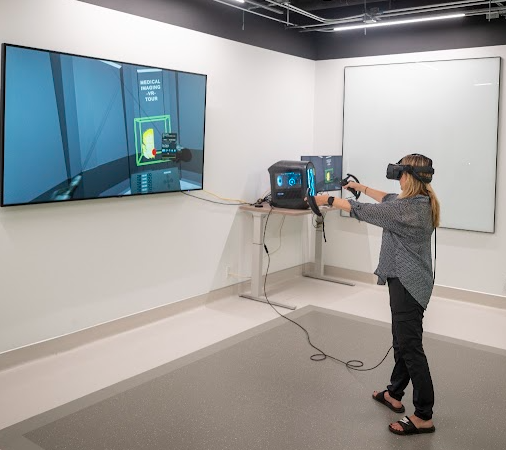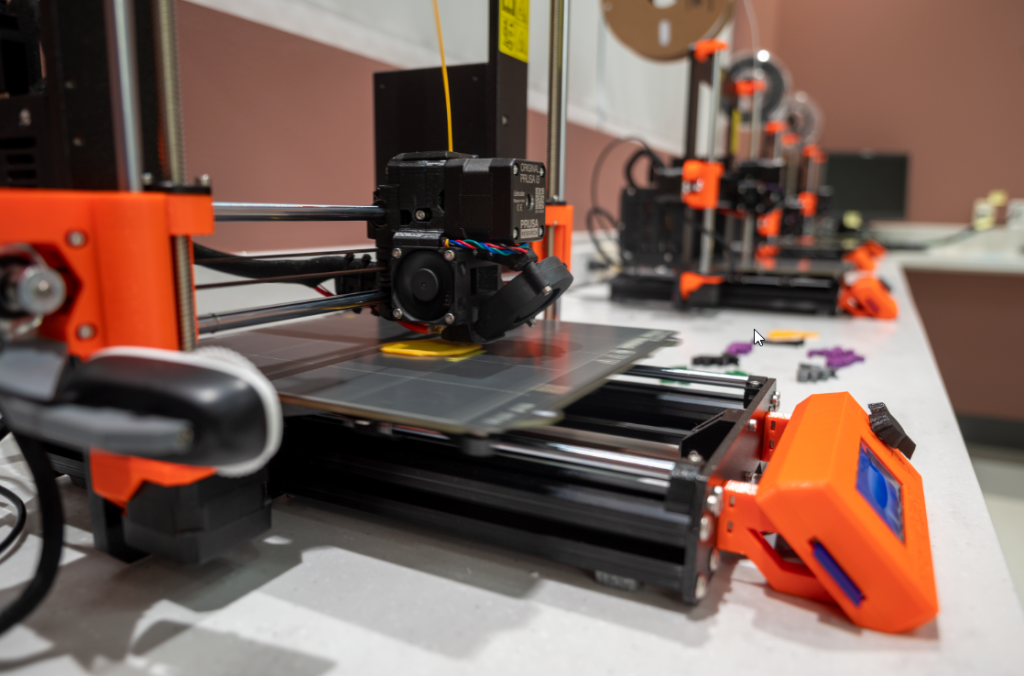The Geoffrey and Robyn Sperber Health Sciences Library (opened Sept 2023) in ECHA now has three exciting digital services available for University of Alberta staff and students.
Virtual Reality Lab

The Virtual Reality (VR) lab is a dedicated space for UofA staff and students to experience virtual reality, such as viewing the inside of a human body in three dimensions, visualizing and building chemical compound proteins and nucleic acids, or experiencing what it is like to live with an intellectual disability! The VR lab is equipped with a Valve Index and a Meta Quest Pro headset as well as a state-of-the-art gaming computer. You (and up to 4 of your friends or colleagues) can book the VR Lab for 2 hours at a time. Your first visit will include a short orientation to the space and equipment. We welcome classroom collaborations and requests for tours of the VR Lab. (FYI: After each session, headsets are cleaned with an ultraviolet cleaning device to ensure a hygienic experience for users!)
Media Lab
The Media Lab is a noise-free space that allows you to record an interview, podcast, lecture or video footage on high-end equipment. You can book the Media Lab through the Sperber library website or this page and access the room after a short orientation session on your first visit. With media equipment generously donated by the Faculty of Medicine & Dentistry, the lab includes 2 microphones, 1 Mac Mini with two monitors, 1 webcam, and 1 RØDECaster™ Pro podcast production studio. Editing can be done on your own computer or on a high-performance computer provided remotely by the Digital Scholarship Centre. The Media Lab may accommodate up to 4 persons at one time, ideally only 2 persons audio/video recording at the same time.

3D Printing
You can submit any educational or research-related 3D model to the University of Alberta’s 3D printing service for free printing! The service is designed to provide low-barrier access to 3D printing – just fill out the form using the “Submit your file” link on the 3D printing website. The form allows you to select your pick-up location at either Sperber Library or Cameron Library. Please be aware that the jobs must take less than 6 hours to print and must fit on the beds of our PRUSA printers. Typical turnaround is 2-3 days, but we cannot guarantee this, so submit your job well in advance of assignment due dates!
Thank you Liz Dennett, Janice Kung and Lisa Tjosvold for authoring this post.
This content is licensed under a CC BY-NC-SA 4.0 Creative Commons licence.
